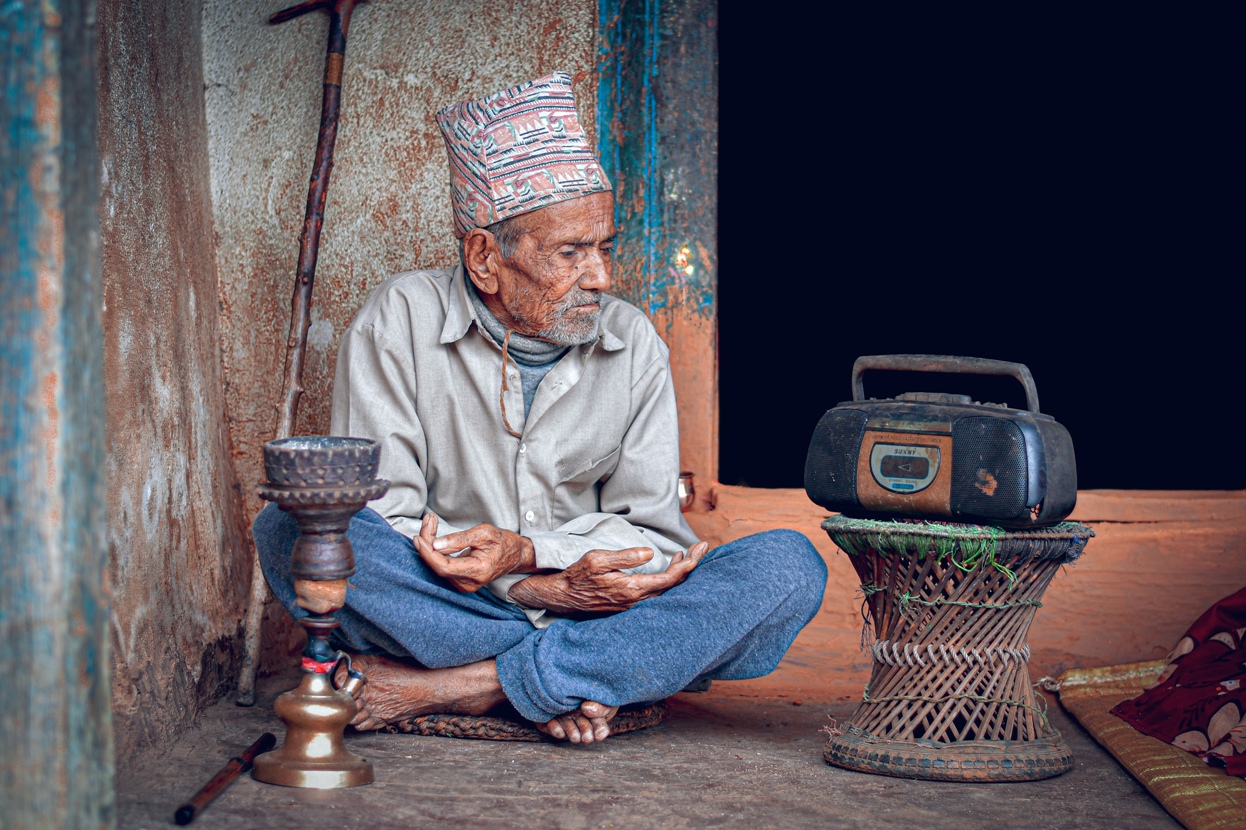It is always an uplifting moment when we come together again. And even more so after being cut off from each other for so long by the COVID pandemic. So, we can only imagine how those attending the UN General Assembly (UNGA) must be feeling as they meet in-person for the first time in three years.
Learn about the challenges facing older people in relation to vaccine access and uptake
With a backdrop of war in Ukraine, soaring commodity prices, and a climate crisis highlighted by the floods covering vast swathes of Pakistan, this may not be the happiest of reunions. But it is still a reunion where they will be able to talk face-to-face with allies, partners and adversaries about the complex issues facing the world today.
This year’s meeting in New York has been made possible by the worldwide roll out of COVID-19 vaccines which has re-opened international travel, and enabled us to see our loved ones, friends and colleagues again.
But many are not so fortunate. While almost three quarters of people in high-income countries around the world have been vaccinated, the reality is very different if your home is in a less affluent country. In countries categorised as ‘low-income’, less than one quarter of people have received even one dose of the vaccine. And, at the most extreme end of the scale, in countries like Burundi and Yemen, 95 percent of the population remain unvaccinated.
And to add insult to injury, where vaccination programmes have been implemented, the universal calls to prioritise those most-at risk – which includes older people – have not been heeded. Almost three quarters of older people and two thirds of health care workers in low-income countries have not been vaccinated.
As WHO Director, Dr. Tedros Adhanom Ghebreyesus, stated: ‘even where the 70% vaccination coverage is reached, if significant numbers of health workers, older people and others at-risk remain unvaccinated, deaths will continue, and the health systems will remain under pressure and global recovery will be at risk’.
The significant gaps in the global health ecosystem were no secret prior to the pandemic. But the COVID-19 pandemic truly exposed that this is much more than a gap. It is a vast chasm of health inequality.
A failure or a success?
In September 2021, when US President Biden hosted a summit to address global vaccine inequity, the summit ended with a pledge for all G7 and G20 leaders to commit to ensuring that 70% of the global population would be vaccinated against COVID-19 by the UNGA summit of 2022. This echoed the previous vaccination target set by the WHO.
One year later, the global disparity between rich and poor speaks for itself. If you live in an affluent country, the goals have been met. But for the millions of people who live in the world’s poorer countries, the targets set at the White House summit and by the WHO are nothing more than fine words and fantasy.

© Ganesh Bista / Ageing Nepal
But what has this got to do with the UNGA?
Let us not be fooled by the fact that we can once again travel the world and meet in person into believing that the Covid pandemic is over.
This pandemic – and the threat it poses to our health, our economies, and our lifestyles – will never be truly over until all those most at risk have been protected. Lives are still being lost to COVID-19 and older people remain the most at risk.
We urge the world leaders gathering in New York, to reflect on their own privilege. Vaccines have made it possible for them to meet again. Now is the time to put in place programmes to make sure that everyone is safe.
They must use this year’s meeting to address the continuing disparity in countries’ vaccination coverage and to take the action they committed to last September to save lives, stabilise economies, and create a resilient future pandemic preparedness system.
HelpAge International is calling on the member states and representatives of the global community attending the UNGA to intensify efforts to address issues faced in countries where the reach of vaccines remains low. They must take action to improve vaccine coverage and close the vaccine equity gap by:
- Increasing vaccine financing to support countries to develop a robust information management system and to tackle global and intra-country supply challenges to respond not only to emergencies but also to the broad public health systems in achieving universal health coverage (UHC).
- Expanding vaccine manufacturing technology to emerging and low-income countries to address the persistent vaccine supply chain challenges.
- Ending vaccine ageism and prioritise those most-at-risk including older people in line with WHO guidance.
- Increasing efforts to improve demand generation activities to address misinformation and vaccine hesitancy among the high-risk group.
- Fostering multi-stakeholder engagement, including older people and those working with them in the design, delivery and monitoring and evaluation of COVID-19 vaccines.
- Engaging partners working in humanitarian settings/fragile contexts to address vaccine access and demand generations issues in this area.
Learn more about HelpAge International’s campaign for vaccine equity.
